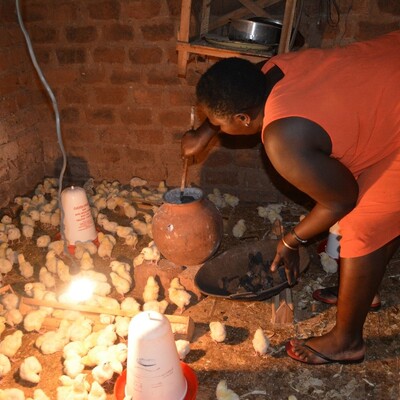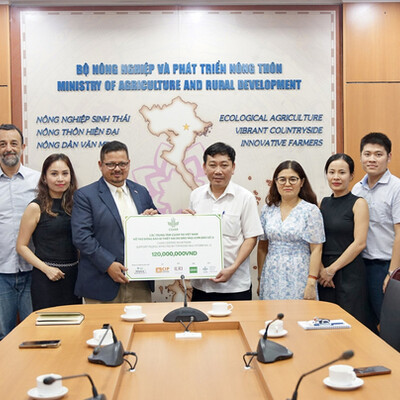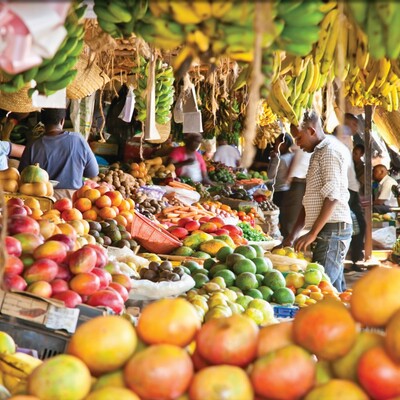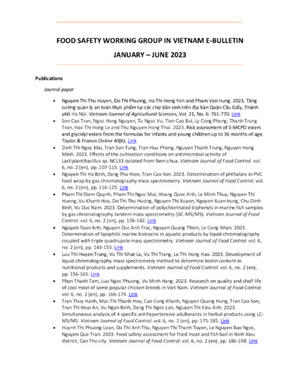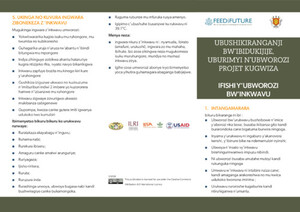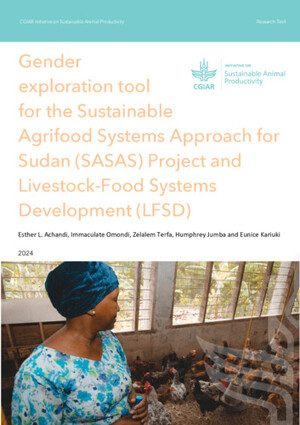
Better coordination and enhanced awareness essential for new One Health initiative in Bangladesh
On 18 August 2021, 80 people from government, research and academia across Bangladesh gathered virtually to discuss a proposed new CGIAR initiative to protect human health through a One Health approach. It is one of more than 30 new initiatives being developed by CGIAR to implement its 2030 research and innovation strategy.
All initiatives will operate by co-identifying challenges and research foci with key partners, and co-designing, co-creating, and co-learning with these partners throughout the innovation process.
The development of the One Health initiative is being led by a team of scientists from four CGIAR research centres — the International Livestock Research Institute (ILRI), the International Food Policy Research Institute (IFPRI), the International Water Management Institute (IWMI) and WorldFish — in collaboration with external research partners from Centre Suisse de Recherches Scientifiques en Côte d’Ivoire, EcoHealth Alliance and the University of Liverpool.
To ensure alignment of the proposed initiative with national priorities, the team convened a series of online consultative meetings with research collaborators to gain insights on the main One Health priorities, challenges, interventions and partner organizations in the respective countries.
At the Bangladesh meeting, stakeholders discussed how the One Health initiative can deliver more impacts and better address challenges to ensure sustainable solutions that will improve human health in the future and ensure that there is an integrated response to local demands.
The meeting was opened by Dieter Schillinger, deputy director general of ILRI. He introduced the CGIAR 2030 research and innovation strategy to the participants noting its unified governance under which various research centres will be working together through the proposed initiatives to harness capacities including the One Health initiative.
Participants were introduced to the initiative’s background, objectives, and the research packages by Hung Nguyen, co-leader of ILRI Animal and Human Health program. He explained that the initiative aims to improve the prevention and control of antimicrobial resistance (AMR), foodborne diseases and zoonoses in seven target countries.
The proposed research will take place through five work packages:
- Zoonoses
- Food safety
- AMR
- Environment – water and wildlife interfaces
- Economics, governance and behaviour
The zoonoses work package is designed to tackle the emergence and spread of zoonoses with epidemic and pandemic potential at the interface of wildlife, livestock, and people through surveillance, identification of high-risk behaviours and geographies. This package includes innovations such as data-based zoonotic disease emergence risk mapping, and development of diagnostic assays and streamlining of zoonosis surveillance and control services.
The food safety work package aims to reduce the burden of foodborne disease with a focus on animal-source and other perishable foods in traditional markets. The initiative is supposed to support value chain actors and facilitate good food safety practices.
Arshnee Moodley, leader of the ILRI-hosted CGIAR Antimicrobial Resistance Hub introduced the AMR intervention package that aims to reduce the spread of AMR from livestock, fish and crop production systems through reduced and better-targeted antimicrobial use, surveillance and a better understanding of the environment as a reservoir for AMR. The design team proposed to generate more evidence on how livestock and fish production and farm profits are affected by reducing antimicrobial use while implementing alternative herd and fish health approaches. ICT-based tools will be used to enable related stakeholders to address diseases without using antimicrobials.
Vivian Hoffmann of IFPRI explained the goal of the economics, governance and behaviour package to test the effects of capacity building, incentives, and monitoring on the behaviour of value chain actors and government personnel.
Participants then formed groups to discuss and refine the idea and proposals.
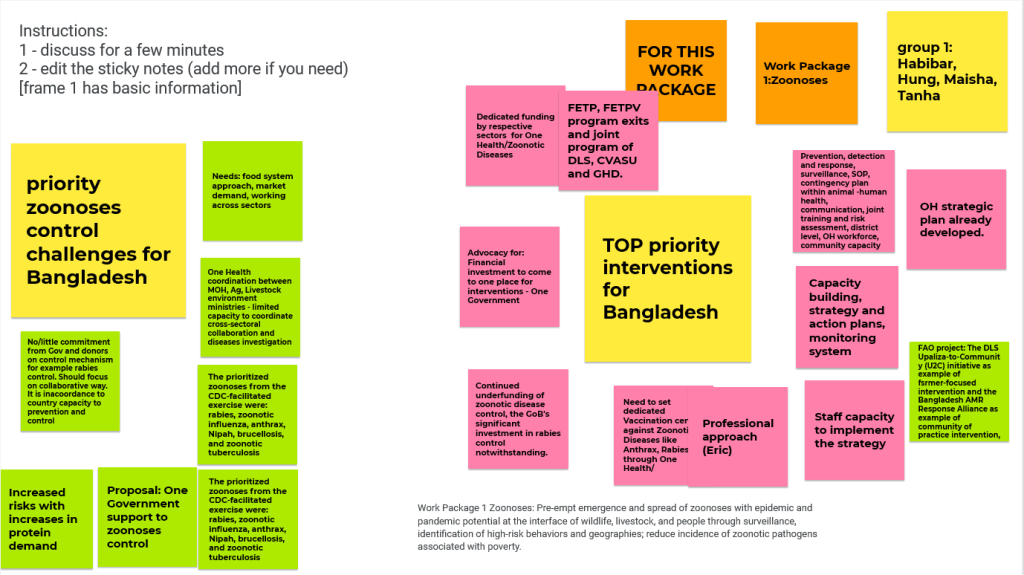 Stakeholders discuss key challenges and priority interventions to improve zoonosis control in Bangladesh on Jamboard platform (photo credit: ILRI).
Stakeholders discuss key challenges and priority interventions to improve zoonosis control in Bangladesh on Jamboard platform (photo credit: ILRI).
Regarding zoonoses control challenges, participants stressed the low awareness by government and donors in controlling mechanisms as well as the important role of strong coordination among ministries of health, agriculture and environment. Advocacy for financial investment, setting up dedicated vaccination centres against zoonosis like anthrax and rabies through One Health approach, capacity development for risk assessment, surveillance, detection and communication were recognized as important interventions to improve zoonosis control in the country.
Stakeholders in the food safety group highlighted challenges including low consumer trust in the safety in supermarkets, with concerns about cross contamination of food products at source, poor handling practices during production processing and marketing, poor facilities at wet markets with lot of contamination, and poor awareness of actors on food safety issues. They proposed a set of interventions such as capacity building on risk analysis and better coordination among authorities working on food safety. Raising awareness for all actors in the supply chain is recommended. Incentive-based approaches are suggested to motivate farmers to get involved in training and apply good practices.
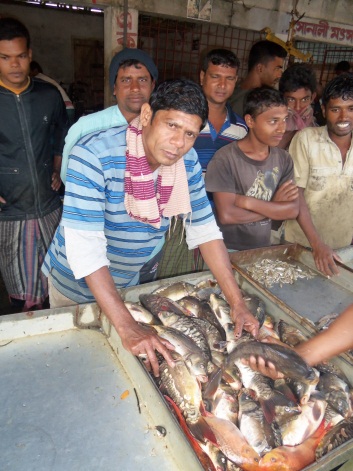 Sales of fish and shrimps at a fish market in Arong Ghata, Bangladesh (photo credit: ILRI/Stuart Worsley).
Sales of fish and shrimps at a fish market in Arong Ghata, Bangladesh (photo credit: ILRI/Stuart Worsley).Stakeholders in the group on AMR noted some pressing challenges, for instance, limited data and research on AMR, prevalent use of antibiotics in poultry, use of antibiotics as growth promoters, and low awareness of farmers and drug sellers on the negative impacts of AMU. Participants called for generating data and evidence for policymakers, strengthening the surveillance system on AMU and AMR and promotion of research and development coordination to help the country deliver better actions.
High on the discussion agenda was how to ensure the inclusion of various groups in the implementation of the initiative. Participants proposed some actions including involving grassroots associations and extension network, and promotion of female participation throughout the lifecycle of the program.
Md. Towfiqul Arif, additional secretary, Ministry of Fisheries and Livestock expressed his appreciation to the CGIAR One Health initiative and commitment shown by delegates. He suggested that CGIAR scientists include raising awareness and capacity development on AMR and zoonoses as little is known about them in the country. He emphasized the need for a comprehensive workplan which clearly defines the specific roles of involved stakeholders when applying a multi-sectoral approach like One Health.
He noted it is important to disseminate research findings to stakeholders, especially policymakers.
If approved, the CGIAR One Health initiative will start in January 2022 and run for an initial three years.
For more information, please contact Hung Nguyen (h.nguyen@cgiar.org) or Vivian Hoffmann (v.hoffmann@cgiar.org)







